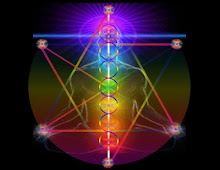
The totality of the mind is vast and complicated. However, it is helpful to look at the entirety of the mind in three basic phases: the instinctive, the intellectual and the intuitive. The instinctive mind is easy to become aware of and experience. It includes the impulses of our physical body, our cravings, our desires, our digestive system, and our emotional mechanism that works through the physical body. The systems of elimination and blood circulation and the regulation of the heartbeat are all within the instinctive mind. This phase of mind functions automatically, or instinctively. It is as much alive in the animal kingdom as among humans.
Man alone develops the intellectual mind and is responsible for its composition as he lives along through life. This phase is a mixture of man's instinctive desires and cravings coupled with the knowledge he has gained from others and from his own intuitive discoveries. Within man's intellect, he organizes a vast amount of knowledge that begins to accumulate from a very early age. Ninety percent of this knowledge deals with the externality of the world and mind itself. The intellect can consume most of man's time through an incarnation, and usually does, lifetime after lifetime.
The intuitive, or superconscious, phase is even more complex, more organized, more refined than the instinctive or intellectual phases. It is mystically known as the mind of light, for when one is in this state of mind, he may see light within his head, and sometimes throughout the entirety of his physical body, if his inner sight is developed enough. Otherwise, he just begins to feel good all over, as actinic energy permeates his nervous system. When intuitive flashes come, he knows the next thing to be done in a creative activity. This is the superconscious area of the mind. When man is extremely perceptive, tremendously creative and knowledge seems to come to him from the inside of himself spontaneously, he is a superconscious being.
Instinctive is a word that some may understand and others take offense at. Don't. It only means "natural or innate," naming the drives and impulses that order the animal world and the physical and lower astral aspects of humans. For example, self-preservation, procreation, hunger and thirst, as well as the emotions of greed, hatred, anger, fear, lust and jealousy, are all instinctive forces. They are very real in animals and humans alike. When the mind functions instinctively, it is controlled by the habit impressions made in the subconscious during its journey through the experiences of life. Instinctive also means that the driving force comes from the sexual nature. The nature is turned in that direction subconsciously, even though the conscious mind may not be cognizant of the fact. It also means that in the event of an emergency, the animal nature would take over completely, being jarred loose from lack of what I term "mind-control," or from what might be called self-control.
The Master Course of Himalayan Academy
by Satguru Sivaya Subramuniyaswami








No comments:
Post a Comment